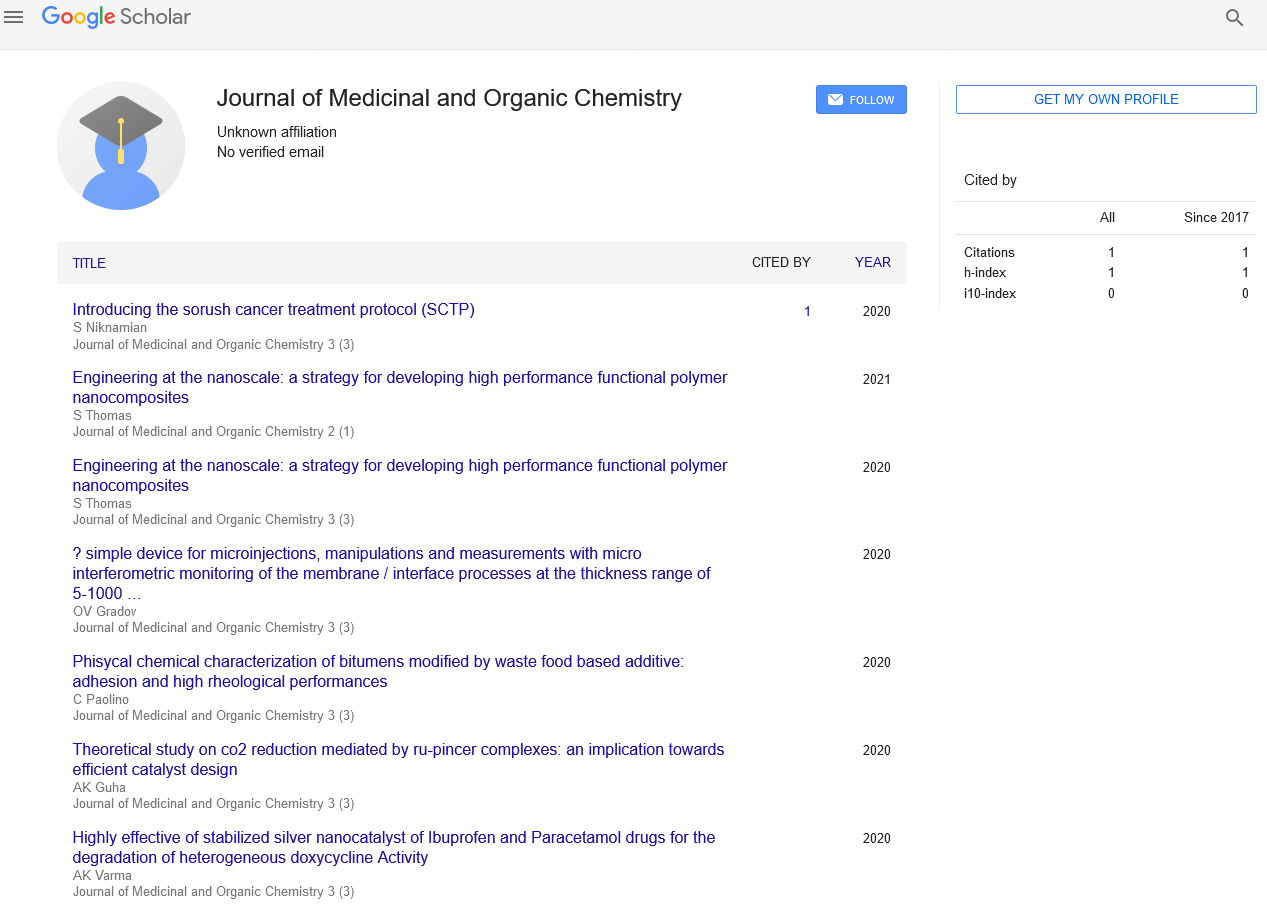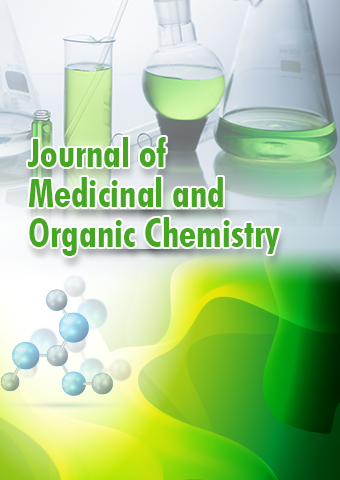Perspective - Journal of Medicinal and Organic Chemistry (2023) Volume 6, Issue 6
Guardians of Health: Navigating the Complex Landscape of Immunology
- Corresponding Author:
- Jyoti Matad
Department of Biological Science,
St Clara University,
California,
USA
E-mail: jsm99@med.cornell.edu
Received: 15-Nov-2023, Manuscript No. jmoc-23-121585; Editor assigned: 21-Nov-2023, PreQC No. jmoc-23-121585 (PQ); Reviewed: 06-Dec-2023, QC No. jmoc-23-121585; Revised: 13-Dec-2023, Manuscript No. jmoc-23-121585 (R); Published: 29-Dec-2023, DOI: 10.37532/jmoc.2023.6(6).147-148
Introduction
In the intricate dance of life, the immune system emerges as a silent guardian, tirelessly defending the body against invaders and maintaining a delicate balance between protection and tolerance. Immunology, the study of the immune system, has unveiled the intricacies of this biological defense mechanism, shedding light on its profound impact on health and disease. This article explores the captivating realm of immunology, from its foundational principles to groundbreaking discoveries and the evolving landscape of immunotherapy.
Description
The fundamentals of immunology
The immune system’s arsenal: At the core of immunology lies the immune system a complex network of cells, tissues and molecules working in harmony to identify and eliminate foreign invaders. Two primary branches, the innate and adaptive immune systems, collaborate to provide a swift and specific defense against a myriad of pathogens.
Cells of the immune system: White blood cells or leukocytes, form the backbone of the immune system. Neutrophils, macrophages and dendritic cells are key players in the innate response, acting as the first line of defense. Adaptive immunity, on the other hand, involves T cells and B cells, specialized cells capable of recognizing specific pathogens and orchestrating a targeted immune response.
Antibodies and antigens: Antibodies, also known as immunoglobulins, are proteins produced by B cells in response to specific pathogens. These antibodies bind to antigens molecules on the surface of pathogens marking them for destruction by other components of the immune system. This elegant system of recognition and response forms the basis of adaptive immunity.
Breakthroughs in immunological research
Vaccines: Perhaps one of the most impactful contributions of immunology to public health is the development of vaccines. By stimulating the immune system to recognize and remember specific pathogens, vaccines provide a preemptive defense, preventing or mitigating the severity of infectious diseases.
Monoclonal antibodies: The advent of monoclonal antibodies represents a milestone in immunotherapy. These laboratory-produced molecules mimic the immune system’s ability to fight off harmful pathogens, offering targeted treatment for various diseases, including certain types of cancer and autoimmune disorders.
Immunology in disease and health
Autoimmune disorders: In some cases, the immune system turns against the body, leading to autoimmune disorders. Conditions like rheumatoid arthritis, lupus and multiple sclerosis are examples where the immune system mistakenly attacks healthy tissues. Understanding the underlying immunological mechanisms is crucial for developing effective treatments.
Infectious diseases: Immunology plays a central role in the battle against infectious diseases. The immune response, whether natural or vaccineinduced, is essential for preventing, controlling and eradicating pathogens such as viruses and bacteria.
Immunotherapy: Revolutionizing treatment modalities
Cancer immunotherapy: The field of immunology has ushered in a new era in cancer treatment. Immunotherapies harness the power of the immune system to target and eliminate cancer cells. Checkpoint inhibitors, CAR-T cell therapy and therapeutic vaccines are among the innovative approaches transforming the landscape of oncology.
Allergies and desensitization: Immunotherapy extends beyond infectious diseases and cancer. In the realm of allergies, desensitization therapies expose individuals to small, controlled doses of allergens, gradually training the immune system to tolerate substances that would otherwise trigger allergic reactions.
Challenges and frontiers
Immunological memory: While the immune system possesses remarkable memory, enabling it to mount rapid and specific responses upon re-exposure to pathogens, the intricacies of immunological memory are still being unraveled. Understanding how the immune system retains information over time is critical for optimizing vaccine strategies.
Immune tolerance: Achieving immune tolerance, where the immune system recognizes and tolerates the body’s own tissues, remains a challenge in the treatment of autoimmune diseases. Deciphering the mechanisms that govern immune tolerance could pave the way for more effective therapies.
Conclusion
High blood pressure, as a silent and pervasive contributor to stroke risk, underscores the importance of proactive management and prevention strategies. Understanding the complex tapestry of stroke causes involves recognizing the intricate dance between hypertension, atherosclerosis and various contributing factors. As the medical community continues to unravel the nuances of stroke etiology, the role of hypertension remains a focal point in bridging the gap to effective stroke prevention, offering the potential for better outcomes and a reduced global burden of this critical neurological condition.

